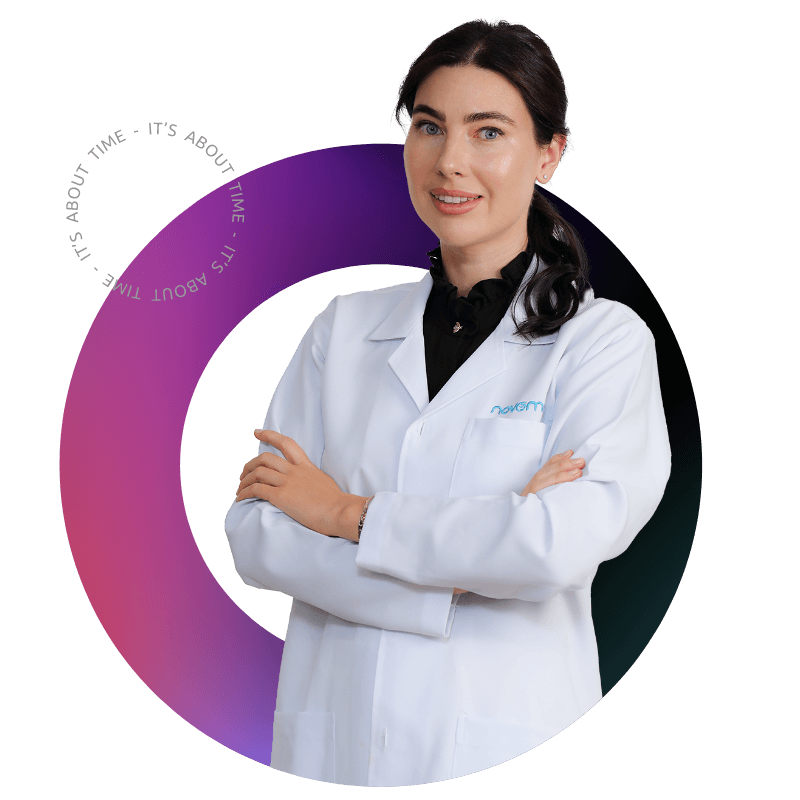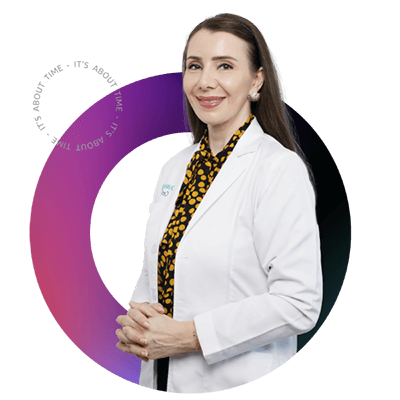Hyperpigmentation … a skin condition that requires careful and specialized care!
You may notice some brown or dark spots on the surface of the skin and wonder about the causes of these spots … It is hyperpigmentation that can affect the skin as a result of many factors, most notably exposure to the sun, which affects the pigment cells in the body. What is hyperpigmentation? What are the most prominent causes? How is it diagnosed? What are the methods used to treat it?
What is hyperpigmentation?
Hyperpigmentation is a skin condition that causes dark spots to appear on the skin. It can be concentrated in one area of the body or spread across various parts. These spots appear especially on the areas most exposed to the sun, such as the face and hands, but they can also appear on the back and other parts of the body. In most cases, the sun is the most influential factor in this condition, which leads to an overproduction of melanin in the body by the melanocytes.
In some cases, hyperpigmentation appears from birth, like Nevus of Ota or coffee milk spots; In other cases, this condition appears at a certain stage of life like the case of acne or skin lesions.
What is the role of pigment cells in the body?
Melanocytes produce a brown pigment known as melanin which is responsible for determining the color of skin, hair and eyes in the body. When these cells are exposed to excessive sunlight, they secrete more melanin, which in turn leads to the darkening of the skin, turning it brown or dark. The interaction of these cells with the body varies according to the color of the skin, whether it is white or brown. This overproduction of melanin is responsible for hyperpigmentation.
What are the causes of hyperpigmentation?
The overproduction of melanin in the body is the main cause of hyperpigmentation, but other causes can lead to this condition, including:
- Hormonal disorders are one of the causes that lead to hyperpigmentation, as the pigment cells are affected by these changes. This may also occur as a result of following a certain hormonal treatment.
- Excessive exposure to sunlight is also responsible for hyperpigmentation, as sunlight affects melanin in the body and causes dark spots to appear, especially if skin protection is not provided.
- Some medications affect the activity of pigment cells in the body, similar to antidepressants that may cause gray spots to appear on the skin.
- Dermatitis is also responsible for hyperpigmentation as a result of the great damage that may be caused to the skin, which leads to the appearance of dark spots.
- Some diseases can also be responsible for hyperpigmentation, such as Addison’s disease, which is caused by a defect in the adrenal gland, or hemochromatosis, which causes a high concentration of iron in the blood.
What are the influencing factors that cause hyperpigmentation?
Skin can be affected greatly and quickly by external factors, in addition to being severely affected by physical health conditions.
Hyperpigmentation can appear as a result of many influencing factors, most notably:
- Sun exposure is the most prominent factor that directly affects the skin. It activates the pigment cells and increases the production of melanin, causing hyperpigmentation.
- Among the influencing factors is the color of the skin itself, as people with darker skin are more likely to suffer from hyperpigmentation than those with lighter skin tone.
- Infections or skin diseases also affect pigment cells and increase melanin production.
- Pregnancy may also cause hyperpigmentation, especially since some pregnant women suffer from melasma during pregnancy. On the other hand, oral contraceptives also play a role in hyperpigmentation, as they affect body hormones.
- Wounds and burns that affect the skin can be one of the factors causing hyperpigmentation. Pigment cells activate and increase melanin production to heal wounds, burns and skin damage.
What are the types of hyperpigmentation?
It is possible to distinguish between different types of hyperpigmentation, depending on the causes that lead to this condition. The types are divided as follows:
Localized hyperpigmentation
This type of hyperpigmentation results from injuries and inflammations the skin is exposed to, in addition to the body’s reaction to sunlight, as well as from abnormal skin tags.
Freckles
Freckles are classified as one of the types of hyperpigmentation, also known as liver spots. it is affected by the time factor, as it becomes more prominent with age, so it is very common in the elderly. Freckles appear as flat spots of black or dark brown color on the face, hands, or any other body part exposed to the sun.
Melasma
Melasma, a type of hyperpigmentation, is most often associated with pregnancy, but other conditions may lead to melasma. It is a grayish patch of skin that appears particularly on the face, neck and hands. Melasma may appear in pregnant women or those with brown skin in particular.
Inflammatory hyperpigmentation
As the name indicates, this type of hyperpigmentation is associated with severe skin diseases and infections such as eczema, and it leads to the appearance of dark skin patches on some parts of the body, especially the face and neck.
Drug-induced hyperpigmentation
This type of hyperpigmentation is caused by certain medications, antidepressants, antibiotics and chemotherapy. It leads to the appearance of dark spots on a large area of the skin. The color of the spots varies between violet, black, blue, brown and gray.
How is hyperpigmentation diagnosed?
Diagnosing a skin condition requires consulting a dermatologist, but there are some signs that you can be check before seeing a doctor. For example, you can notice the appearance of some spots of varying sizes and shapes on the body, which are brown or dark in color. When consulting a dermatologist, they check and examine the spots and review the patient’s family medical history and conduct the necessary examinations.
The doctor may also resort to taking a skin biopsy to examine it more accurately and to get a more accurate diagnosis of the condition. The dermatologists at Novomed Centers are always ready to answer all your questions and provide the best medical reviews and the latest treatments for the various types of skin problems that you may suffer from, especially hyperpigmentation.
How is hyperpigmentation treated?
After diagnosing hyperpigmentation, the dermatologist will determine the appropriate treatment for the condition. There are different approaches to treating hyperpigmentation, including:
Skin lightening creams
These creams are used if the skin spots are flat, such as melasma and freckles. These creams reduce the appearance of spots and it is recommended to apply them directly to the spots once or twice a day. This treatment is considered effective on all types of skin, as it works to lighten spots to restore their natural color.
Skincare acids
These acids are used to treat dark spots by exfoliating the outer layer of the skin and getting rid of old cells. This method is effective for people with fair skin. Examples of the acids used, alpha hydroxy acid, kojic acid, vitamin C and others.
Chemical peel
Chemical peels help get rid of the affected skin layer, as acids are used in stronger concentrations to be able to get the best results. This treatment helps get rid of spots caused by aging, sunlight or melasma.
Retinoids
These substances penetrate deep into the complexion and treat hyperpigmentation in depth, helping to achieve an even complexion free of spots. Retinoid is beneficial for all types of skin as it provides the desired results.
Medical treatments
In some cases, hyperpigmentation calls for advanced medical treatments, such as laser therapy or light therapy, as these techniques help get rid of dark spots and restore an even skin tone.
If you suffer from hyperpigmentation, you can see a dermatologist at Novomed Centers to determine the appropriate type of treatment and receive specialized and advanced medical assistance in Novomed specialized clinics.



































